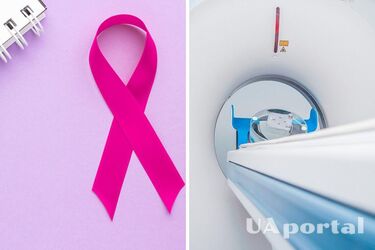What check-ups should be done in 2024 to detect cancer in a timely manner: a list

BLOG
Cancer remains a global problem that is still far from being overcome. According to the WHO, approximately 20 million new cancer cases and 9.7 million deaths were recorded in 2022. If the incidence rate continues to grow, it is projected that by 2030 the number of people with cancer for the first time will reach 35 million.
According to the Ministry of Health, in 2022, more than 93 thousand new cases of malignant tumors were registered in Ukraine: more than 45 thousand in men and almost 48 thousand in women. 39 thousand people died of cancer. The most common types of cancer today are lung, breast, and colorectal cancer.
Regular and timely cancer screening helps to detect cancer at an early stage when treatment can be much more successful. Such screening should be part of the preventive medical examinations recommended for your gender and age group. According to current scientific evidence, at least 40% of cancer cases can be prevented with effective primary prevention measures.
Experts in the field of healthcare, preventive medicine, and oncology identify five cancer screenings that you should pay attention to.
MAMMOGRAPHY
This is a diagnostic procedure for assessing the condition of the mammary glands using special X-ray equipment (mammograph). Regular mammograms allow doctors to compare breast changes over time and detect breast cancer in the early stages, sometimes up to three years before any signs of cancer appear.
Women with an average risk of breast cancer:
- aged 40 to 44 years can have an annual mammogram if they wish
- aged 45 to 54 years should have a mammogram every year,
- aged 55 and older can have a mammogram annually or every two years if they are healthy.
Women at high risk of breast cancer are those who have a personal history of breast cancer, a serious family history of breast cancer, or a genetic mutation that increases the risk of breast cancer (for example, in the BRCA gene) and have not had radiation therapy to the chest before the age of 30. In women with a higher risk, depending on family or individual risk, screening may also include ultrasound and MRI.
CERVICAL CANCER SCREENING
Two tests can help detect or prevent cervical cancer at an early stage. The HPV test detects the human papillomavirus, which can cause changes in cervical epithelial cells. If HPV does not disappear on its own, it can cause condylomas and cancer. A Pap test (cytology test) looks for cellular changes in the cervix that can turn into cancer if left untreated.
For these tests, your doctor will collect cells and mucus from the cervix and the area around it. The sample is then sent to a laboratory for testing. Screening for cervical cancer usually begins after the age of 18. Women can have a Pap test along with HPV DNA testing to assess their risk of developing cervical cancer. Depending on your age, your doctor will determine how often you need to have these tests done.
COLORECTAL SCREENING
Colorectal cancer screening is recommended for men and women aged 50 to 75 years. People over 75 and those who are at increased risk of colorectal cancer should consult their doctor about screening.
There are several screening tests that can detect polyps or colorectal cancer, including flexible sigmoscopy, colonoscopy, and fecal occult blood test.
For preventive screening, colonoscopy is most often used. During a colonoscopy, the doctor examines and assesses the condition of the inner surface of the rectum and colon for polyps or cancer using a special probe. If polyps and cancer are found, the doctor can sometimes remove them during the procedure. If everything looks normal, it is usually recommended to have a colonoscopy in 10 years. The screening interval depends on individual and family risk.
SCREENING FOR PROSTATE CANCER
A blood test for prostate-specific antigen (PSA) determines PSA, which is a protein produced by prostate cells (both normal and cancerous). The higher the PSA level, the higher the likelihood of prostate cancer. For further examination, some doctors use a PSA cutoff point of 4 ng/ml or higher, while others recommend it at 2.5 or 3 ng/ml.
Prostate cancer screening is recommended for men with a high risk of prostate cancer (if it has been diagnosed in first-degree relatives) at the age of 40-45 years, and for men with an average risk of cancer - starting from the age of 50.
LUNG CANCER SCREENING
Low-dose computed tomography (Low-Dose CT, or LDCT) is the only recommended screening test for lung cancer. The scan is performed quickly using an X-ray machine that takes a picture of the lungs.
Lung cancer screening is recommended once a year for people who have a long history of smoking (e.g., one pack a day for 20 years or two packs a day for 10 years), are current smokers or have quit within the last 15 years, and are aged 50 to 80 years.
HOW TO GET SCREENED
Ukraine has a medical guarantee program that covers the most important examinations and laboratory tests for cancer detection. In particular, mammography (breast cancer screening), PAP test (cervical cancer screening), fecal occult blood test and colonoscopy (colon cancer screening), pelvic ultrasound, etc. Usually, a family doctor refers to the relevant examination.
The year 2024 has just begun. It's time to schedule cancer screening for yourself and your loved ones.

